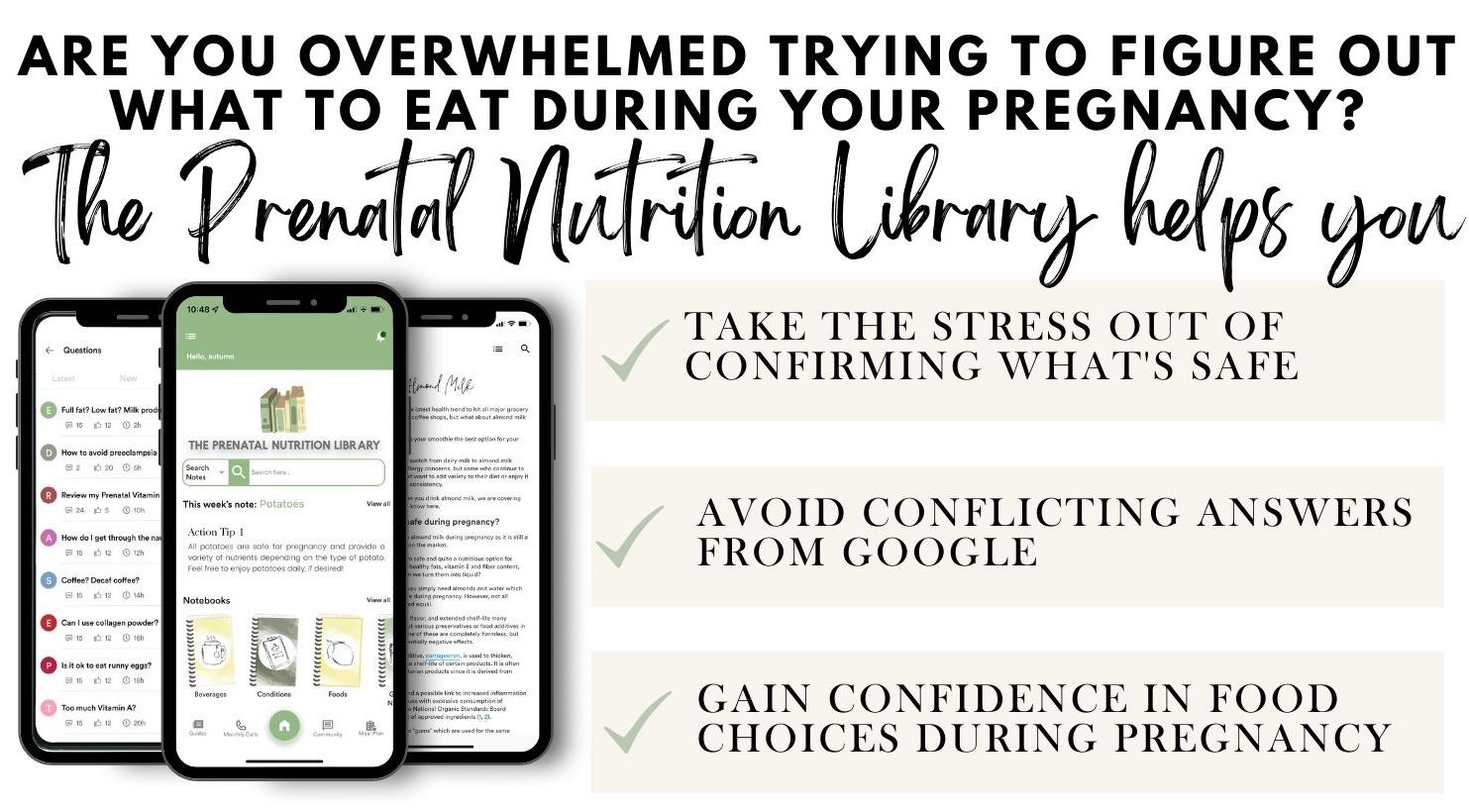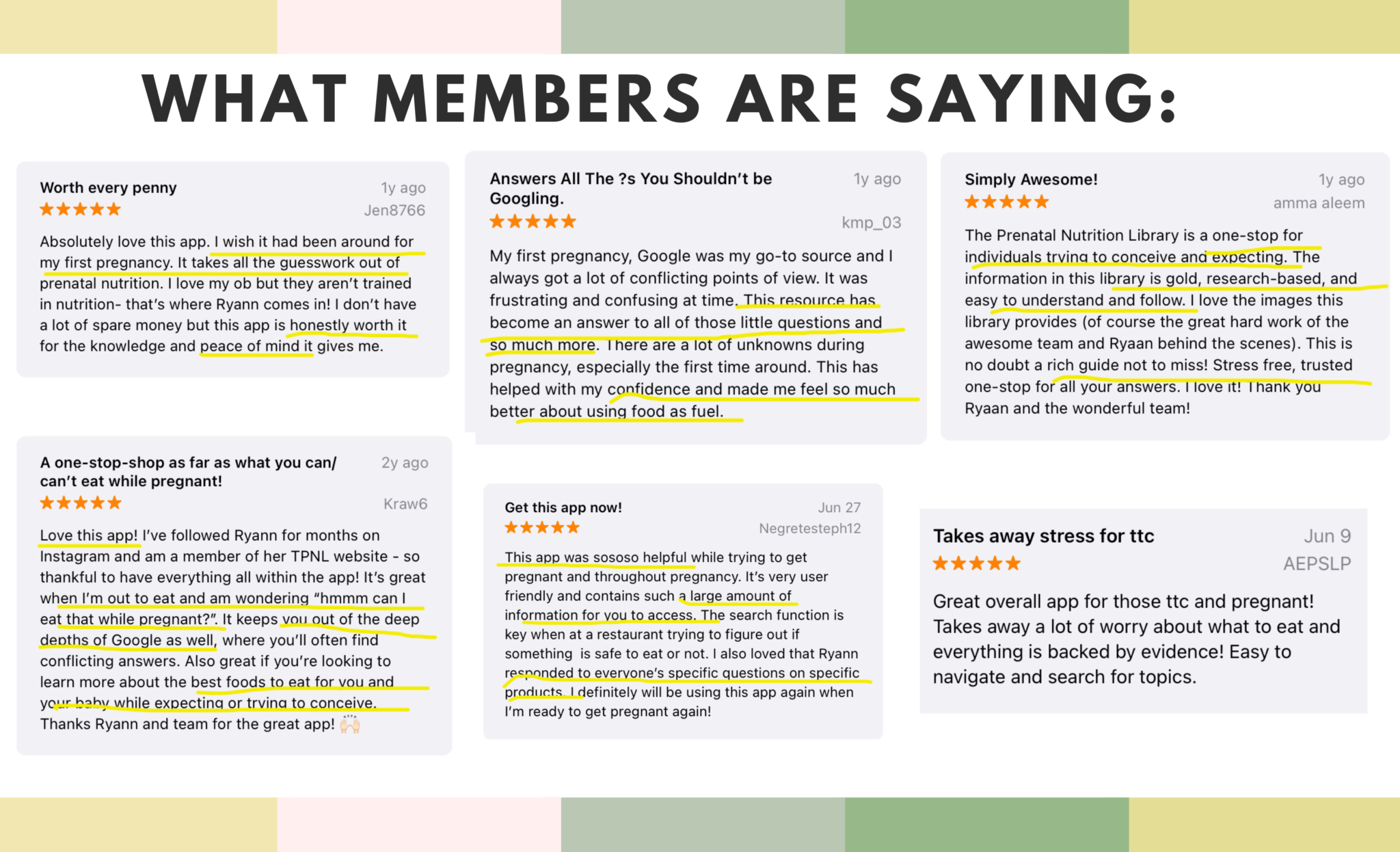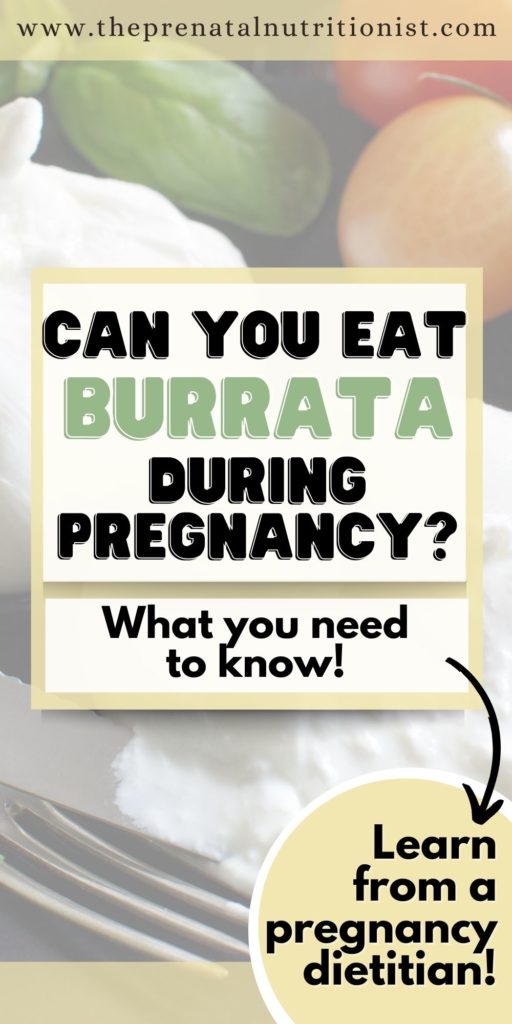
Hmmmm…burrata. If you’re curious if this delicious cheese is safe to consume during pregnancy, you’ve come to the right place. But first, here’s a little background on burrata!
Burrata is a creamy, rich Italian cheese made from mozzarella and cream. It has a soft, pouch-like center filled with stracciatella, strings, or shreds of cream and bits of mozzarella. Burrata originated in the Puglia region of Italy and is commonly eaten fresh within a day or two. It is often served as an appetizer with bread or sliced tomatoes, as a pizza topping, or drizzled with olive oil in a salad. Burrata has gained worldwide popularity due to its melt-in-your-mouth texture and indulgent flavor.
Burrata is considered a semi-soft cheese. For this reason, many wonder about the food safety of burrata during pregnancy. Soft cheeses have a higher moisture content. This creates an environment that can potentially harbor harmful bacteria that cause foodborne illness, especially if not prepared or stored properly. Listeria monocytogenes, a type of bacteria that causes listeriosis infection, is of chief concern for pregnant women. While rare, listeriosis can pose serious risks to pregnant women and their developing babies, potentially leading to premature delivery, miscarriage, or life-threatening infection in the newborn.
Although the risk of contamination is still relatively low and listeriosis is rare, it is good to be aware of the facts and ways to reduce your risk. So, come along with me as I consider carefully whether burrata cheese is safe to eat during pregnancy!
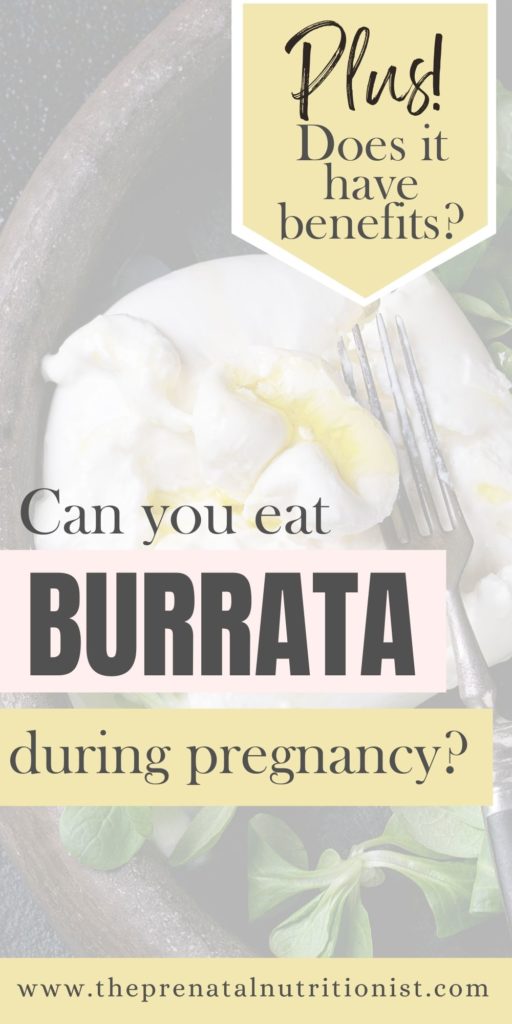
Can You Eat Burrata When Pregnant?
The short answer is that eating burrata cheese during pregnancy can be safe! The key is to choose one made with pasteurized ingredients. Burrata, classified as a semi-soft cheese, poses a “higher risk” during pregnancy due to its moist texture, facilitating the easier growth of harmful bacteria. However, when proper precautions are followed, pregnant women can feel comfortable enjoying this rich Italian cheese.
It is best practice to choose a burrata made with pasteurized milk. Pasteurization is a process that involves heating a food, ingredient, or beverage to a specific temperature for a set duration of time to kill potentially dangerous bacteria that could be present, such as Listeria monocytogenes. The good news is that most soft and semi-soft cheeses sold in grocery stores in the United States are pasteurized. Always read the food labels. You may need to ask if purchasing cheese at a farmer’s market or health food store.
When milk and cream undergo rigorous ultra-heat treatment to stringent standards before crafting burrata, it annihilates potentially harmful bacteria, significantly reducing the risk of potential contaminants and pathogens. Opting for burrata derived from pasteurized ingredients during pregnancy greatly reduces concerns about foodborne illness, paralleling the safety assurance in hard cheeses and other foods considered pregnancy-safe.
Great news for burrata enthusiasts like yourself!
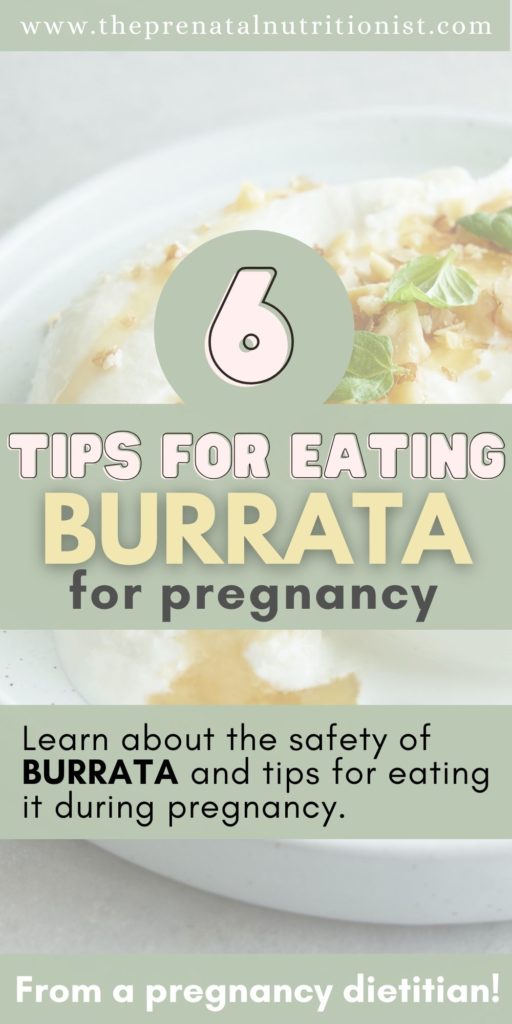
Tips For Eating Burrata During Pregnancy
Consume Within 48 Hours
Burrata typically has a shorter shelf life than other cheeses because it’s fresh and contains cream. Finishing the burrata within 2 days of buying it is usually best. This is to maintain both quality and taste.
Look for Undamaged Protective Packaging
Go for burrata sold in sealed packaging or vacuum-packed for maximum freshness. Protective packaging protects the cheese and reduces the risk of cross-contamination to help make it as safe as possible. The container should be intact without any signs of damage or leakage. Ensure the packaging is not bloated, as it could indicate spoilage.
Purchase from a Reputable Source
Purchase burrata from a trusted and reputable source. Knowing the source and their reputation for quality can ensure better food safety standards, whether it’s a local farmer or a reliable grocery store.
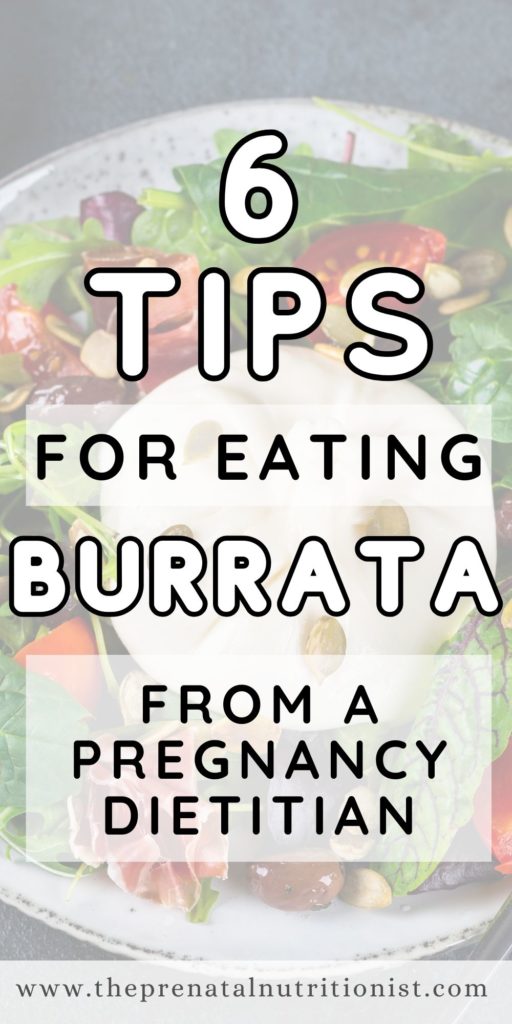
Temperature Control
Don’t leave it sitting out for prolonged periods. Burrata, a fresh cheese, should be stored at refrigeration temperatures to prevent bacterial growth and maintain its quality.
Practice Proper Food Handling
As with any food prep, wash hands, utensils, cutting boards, and containers thoroughly before and after handling burrata to avoid cross-contamination. Proper cleaning helps to safeguard health.
Enjoy in Moderation
If you enjoy burrata, eat it in moderation, along with plenty of other food groups and nutrient-rich food choices.
As an expectant mother, these simple steps will help you safely savor the decadent creaminess of burrata during pregnancy. You can confidently include this specialty cheese by storing and selecting pasteurized commercial burrata.
Search through The Prenatal Nutrition Library App for more information on eating foods like soft cheeses during pregnancy. With our app, you always have a trusted answer from the experts at your fingertips – no more conflicting answers on Google!
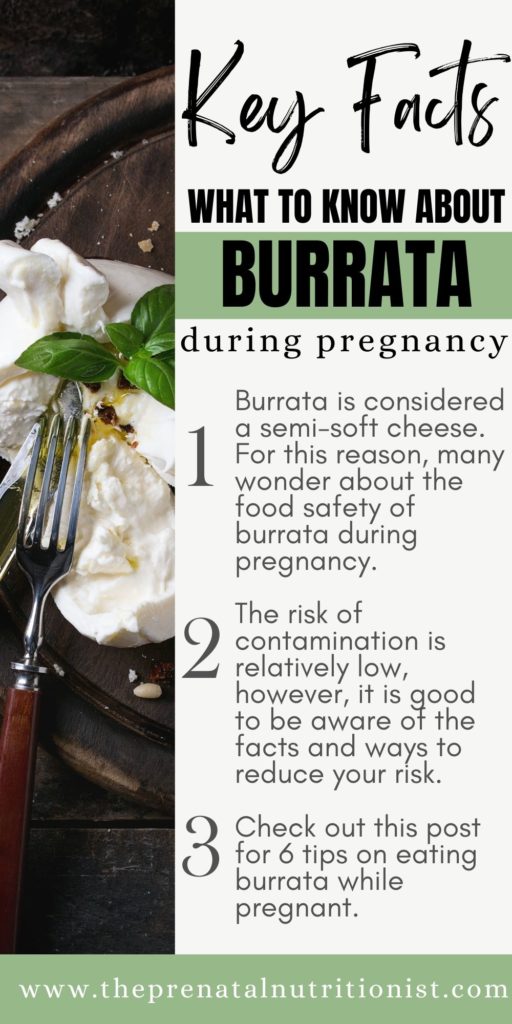
Burrata is a safe choice during pregnancy if made with pasteurized ingredients.
Burrata can be consumed fresh and a delicious treat during pregnancy with pasteurized ingredients. The creamy texture and rich flavor of burrata pair beautifully on rustic bread, in salads alongside meats and vegetables, or atop homemade pizzas. Pregnant women can safely enjoy this Italian cheese treat with some basic precautions.
Practicing safe food handling and food safety best practices is a key aspect of a healthy pregnancy. Listen to your body, nourish it with nutritious foods, and enjoy this special time. And along the way, make my blog your regular go-to for all things food and nutrition for pregnancy. Here are some of the many cheese-related topics I’ve covered on the blog;
- Can You Eat Goat Cheese While Pregnant?
- Can You Eat Blue Cheese While Pregnant?
- Pregnancy Safe Cheese Board
For more in-depth information on nutrition during preconception + pregnancy, as well as expert-crafted meal plans, be sure to join The Prenatal Nutrition Library (TPNL). The Prenatal Nutrition Library is your one-stop shop for evidence-based answers to all your pregnancy nutrition questions so you know what you eat is safe and provides optimal nutrients for you and baby. Want to try a sample meal plan first? Download my FREE 1-week meal plan for pregnancy!



